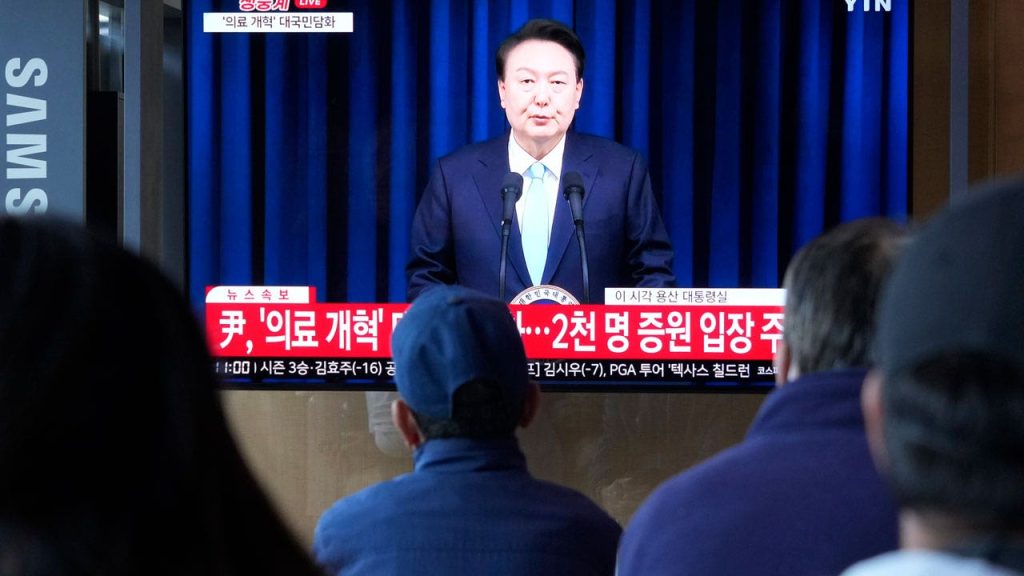South Korea’s president, Yoon Suk Yeol, is facing protests from doctors over his plan to increase medical school admissions by 2,000 in order to address a shortage of physicians. Approximately 12,000 medical interns and residents have been on strike for six weeks, leading to canceled surgeries and treatments in university hospitals. The government argues that the increase is necessary due to the country’s aging population, but doctors believe that schools cannot handle such a sudden influx of students and that it would ultimately harm medical services.
Despite public support for the government’s plan, there is growing frustration over the ongoing conflict between the government and doctors. President Yoon emphasized that the shortage of doctors in rural areas, the military, and essential but low-paying professions is a critical issue that needs to be addressed. He urged striking doctors to return to work and stated that a unified proposal from doctors for a smaller increase in the enrollment quota would be considered. Yoon also highlighted that the average income of South Korean doctors is the highest in the developed world and reassured that the recruitment plan would not lead to lower earnings.
The Korean Medical Association criticized President Yoon for repeating the government’s arguments in favor of the recruitment plan. The association expressed disappointment and called for changes in the government’s stance. Yoon stated that while the government is taking steps to suspend the licenses of striking doctors, he does not want to punish them. He also signaled a willingness to soften punitive measures if the doctors return to work promptly. However, a resolution between the government and doctors remains uncertain, especially after the election of a new hardline chief for the KMA who has demanded an apology from Yoon and the dismissal of top health officials involved in the recruitment plan.
Doctors argue that the government’s enrollment plan does not address key medical issues, such as increasing the number of physicians in crucial but unpopular fields. They also believe that newly recruited students would gravitate towards high-paying specialties in urban areas, leading to increased competition and potentially unnecessary treatments. With a portion of junior doctors on strike, major hospitals are experiencing disruptions as these doctors play a significant role in patient care and training programs. The government and doctors are at an impasse, with potential punitive measures looming over the protesting doctors if a resolution is not reached soon.


